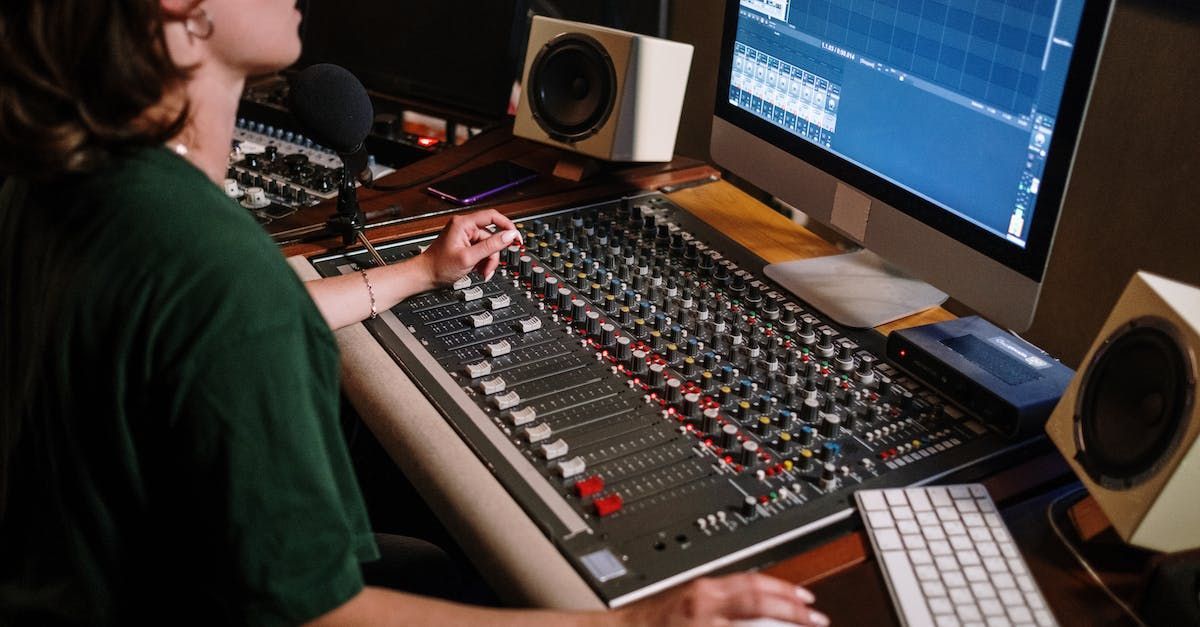Do you want a successful career in the music industry? These music career tips ensure you stay on track to reaching your goals of achieving a long and lucrative career in the music industry.
Music Career Tips
It’s that time of year where many of us are thinking about how far we’ve come in the past year, and what we hope to accomplish next. Regardless of what you’re hoping to achieve, it’s easier to turn your musical dreams into realities if you set goals and lay out the steps you need to take to get there.
This guide discusses how to set S.M.A.R.T. goals, break them down into tangible steps, and set guidelines for keeping yourself accountable.
Setting S.M.A.R.T. Goals
A good goal should contain parameters that make it possible to track and prove progress.
One of the most widely used goal-setting tactics is known as setting S.M.A.R.T. goals: Goals that are specific, measurable, attainable, relevant, and timely. Let’s break it down further.
1. Specific Goals
Your goal should be specific enough that you can break it down into actionable steps. For example, a goal to ‘earn enough money to be a full-time musician’ is quite vague, though it’s a great starting point.
If your goal is vague, try breaking it down into smaller goals that feed into the overarching goal. For example, ‘play more paid shows per month’ or ‘create and sell merch.’
2. Measurable Goals
Once you’ve set a specific goal, define which elements of that goal you can measure. This approach determines whether or not you are on track to reaching that goal. Also, this type of goal setting often requires one big end measurement that determines success, as well as smaller measurable points to track your progress along the way.
How often you should check in with yourself depends on the goal and the timeline. However, it should also be often enough that you can correct or adjust yourself when you’re not progressing as planned.
Continuing with our earlier examples, you could make the above goals measurable by adding trackable parameters, such as ‘play at least three local paid shows per month’ or ‘earn $3,000 back from a $500 investment by designing, sourcing, and selling merch.’
3. Attainable Goals
This is the part of goal setting that requires you to be completely honest with yourself – is your goal realistically attainable?
This approach can be hard to consider without being biased. However, a good place to start is writing down all of the various factors and resources you would require to reach your goal. For example, required time, finances, having a team in place to support you where needed, and of course, having the talent to make it all happen.
Furthermore, if your goal is to play a few paid local shows each month, try brainstorming a list of resources you would need for that to happen. For example, you may need to have created and practiced enough music to fill a set time, as well as have variation between sets to keep your act fresh. You may also need to have some amount of buzz and digital presence already under your belt. This includes a robust social media profiles, an electronic press kit, and perhaps a few shows you’ve already played in the area.
You would also likely need to have some contacts at venues in your town, a booking agent to help you earn gigs or free time to spend researching open mics or jam sessions you can join. Finally, you would also need the equipment necessary to put on a show and the hours of practice behind it to get booked on a regular basis.
4. Relevant Goals
Is the goal you’re setting a good move for you both now and in the long-term? For example, if your goal is to create and sell merch, but you’re having trouble paying your rent, now is probably not the best time to invest your funds in the design and creation of that merch.
Think honestly about where you are in your music career. If you’re just starting out, it’s unlikely you’ll be able to jump into playing shows full time. Instead, more relevant goals may be to take music courses to hone your production or live performance skills, work with a branding consultant to figure out your image, or practice more regularly.
5. Timely Goals
Giving yourself deadlines to meet is key to staying on track. Moreover, deadlines can be flexible, and there’s no reason to beat yourself up if you don’t always meet them. However, they should overall serve as ways to check in with yourself regularly to ensure you’re giving your all to reach your goals.
Ideas for Staying Accountable
Setting goals is the easy part. Actually putting in the work to get there is a different story. After all, if being a ‘successful’ musician was easy, everyone would do it. Below are a few ideas for staying accountable:
- Set mini-goals. Even S.M.A.R.T. goals often require multiple steps to fulfill. Writing down each step of the goal requires you to think and achieve these steps as mini-goals.
- Get organized. Drafting ‘to-do lists’ and putting reminders on your phone keeps you aware of your goals and impending deadlines. For some people, even the physical act of writing down and crossing off listed items can help keep goals top of mind.
- Make your goals visible. Once you’ve got a ‘to-do list,’ put it somewhere highly visible where you’ll see it each day. For example, by your front door or working space.
- Schedule time dedicated to your quest. Block out your schedule to make time for achieving your goal. Turn off your phone and limit distractions to ensure you make the most of your time.
- Recognize when you need help. Sometimes it’s easier and worthwhile to delegate tasks to your manager or a third-party who can do it better. When writing out your mini-goals, list resources under them that can help you more easily achieve the goal.
- Treat yourself. When you do reach one of your mini-goals, reward yourself in a way that is conducive to your overarching goal. For example, if you’ve come up with a stellar merch design, don’t reward yourself by blowing the money you should invest in more production classes at the bar. Instead, post the design on social media to share your work with fans and family. This approach gets them stoked to pull out their credit cards once the design is printed.
What’s Your Music Career Goals?
Wondering what you should set out to achieve this year? Here are a few general ideas to get you started:
- Develop your artist website
- Design a logo
- Spend time setting up social media profiles and growing them
- Take more production courses
- Get fiscally healthy
- Organize your production space or in-home studio
- Book your first show
- Find a manager
Final Tip
Regardless of what your goals are for the year, following the steps above are a way to physically manifest and visualize success. Furthermore, we at Icon Collective wish you the best of luck in your musical endeavors this year!

Turn your passion for music into a Profession: Learn more about our Music School Programs!
MORE ARTICLES FROM THE ICON BLOG

FIND YOUR SOUND, HONE YOUR CRAFT:
Are you ready to turn music into a career? ICON prepares students to become music producers, composers, performers, recording artists, professional DJs, and entrepreneurs in the entertainment industry. Click below to get information about our award-winning programs:

